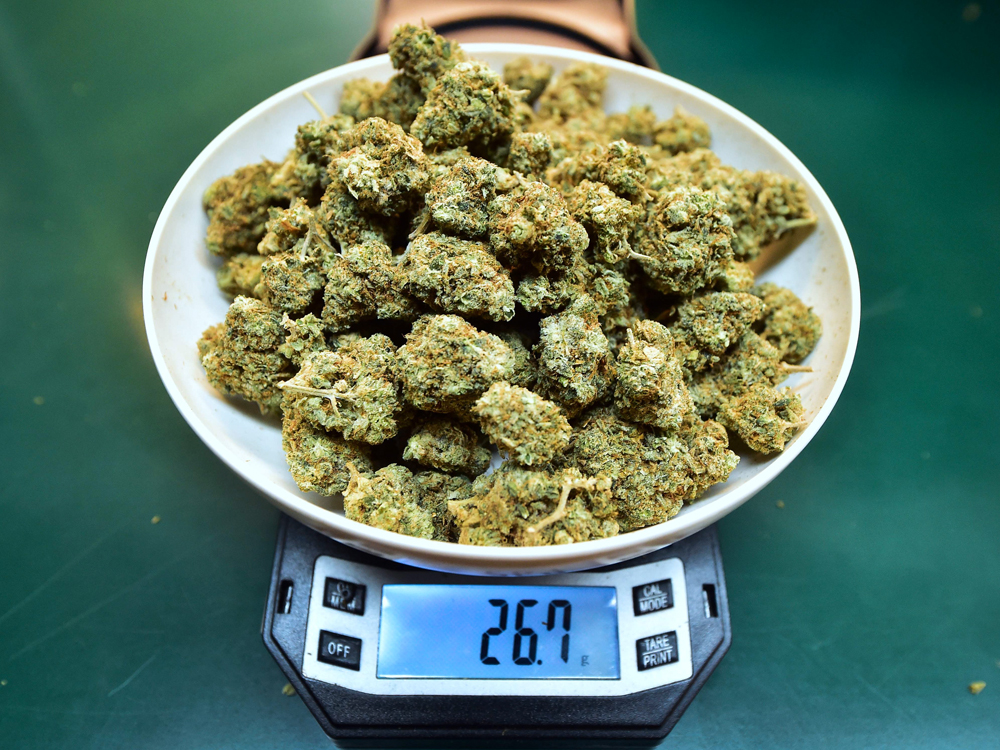You are here
Home 🌿 Marijuana Politics 🌿 Cannabis market proving costly for Alberta, no sign of turning a profit 🌿Cannabis market proving costly for Alberta, no sign of turning a profit

Bringing legalized marijuana to market has proven costly for Alberta, with no sign it will turn a profit anytime soon.
The UCP budget, tabled Thursday, projects cannabis income will remain negative over the next four years, despite previous estimates it would make the province money come 2020.
Following a revenue loss of $34 million in 2018-19, further shortfalls are expected in each of the next four fiscal years: $31 million in 2019-20; $34 million in 2020-21; $24 million in 2021-22 and $25 million in 2022-23.
The net income projections include retailer fees and sales revenue, minus administration and inventory costs, according to budget documents.
The previous NDP budget forecast Alberta would lose $90 million over two years before scraping its way into the black with a net income of $37 million by 2020-21.
However, the province said the updated numbers reflect weaker consumption than initially predicted following cannabis legalization in October 2018.
Calgary has more cannabis stores than any other city in Canada at 66, and 156 additional locations have been approved. Edmonton is second with 48.
Provincewide, the Alberta, Gaming, Liquor and Cannabis Commission (AGLC) has approved 306 retail outlets, which is expected to increase to more than 500 by 2021.
The Notley government budgeted $26 million in cannabis tax revenue in 2018-19, with estimates that it would grow to $99 million by 2020-21 as the illegal cannabis market shrinks and the legal market expands.
New estimates place Alberta’s cannabis tax forecast at $30 million in 2018-19, $70 million in 2019-20 and rising to $84 million by 2022-23.
However, after a year of legalization, it appears the black market cannabis industry is still thriving since it isn’t subject to legal sector demands.
The AGLC is responsible for regulation and online retail sales of cannabis. Budget figures show related retail setup and administration costs are outpacing potential sales revenue.
Spokeswoman Heather Holmen said the commission does not expect cannabis will generate a profit from wholesale sales to private retailers for a few years.
This is because the government is not currently charging a wholesale markup to retailers in an effort to keep prices low to compete with the black market, said Holmen.
“Government does collect an excise tax and provincial duty on sales of cannabis but, unlike the liquor markup and revenue from gaming operations, AGLC does not collect these funds so they are not reported in AGLC financial results,” she explained.
“From an overall government and AGLC total perspective, the net impact of AGLC cannabis operations plus provincial tax and duty is anticipated to be $38.6 million in 2019-20.”
On the flip side, the province estimates alcohol-related revenues are expected to rise over time after a slight decrease in 2019-20 to $823 million from $860 million a year earlier. By 2022-23, the target is $947 million.
Gaming and lottery revenue will take a slight hit from about $1.45 billion in 2018-19 to $1.41 billion in 2019-20, but increase to $1.48 billion by 2022-23.
“AGLC gaming revenue is down in 2019-20, reflecting the short-term economic weakness in late 2018 that spilled over into 2019, but then grows with the forecast strengthening economy,” the budget reads.
420 Intel is Your Source for Marijuana News
420 Intel Canada is your leading news source for the Canadian cannabis industry. Get the latest updates on Canadian cannabis stocks and developments on how Canada continues to be a major player in the worldwide recreational and medical cannabis industry.
420 Intel Canada is the Canadian Industry news outlet that will keep you updated on how these Canadian developments in recreational and medical marijuana will impact the country and the world. Our commitment is to bring you the most important cannabis news stories from across Canada every day of the week.
Marijuana industry news is a constant endeavor with new developments each day. For marijuana news across the True North, 420 Intel Canada promises to bring you quality, Canadian, cannabis industry news.
You can get 420 Intel news delivered directly to your inbox by signing up for our daily marijuana news, ensuring you’re always kept up to date on the ever-changing cannabis industry. To stay even better informed about marijuana legalization news follow us on Twitter, Facebook and LinkedIn.




